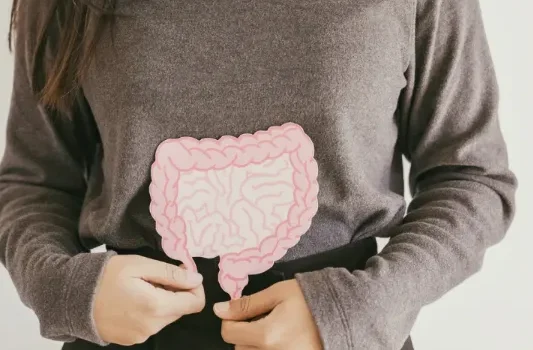Your gut does more than just digest food—it also plays a critical role in managing your cholesterol levels. The trillions of bacteria in your intestines, collectively known as the gut microbiome, influence how your body absorbs and processes cholesterol. Understanding the connection between gut health and cholesterol can provide valuable insights for managing your cardiovascular health naturally.
The Role of the Liver and Gallbladder in Cholesterol Regulation
Before cholesterol enters your bloodstream, it passes through the liver, the body’s main cholesterol processing organ. The liver produces cholesterol and captures excess amounts from the blood, packaging it into lipoproteins. These lipoproteins, like LDL and HDL, transport cholesterol to various parts of the body.
When there’s an excess of cholesterol, the liver transforms it into bile salts, which are stored in the gallbladder. During digestion, the gallbladder releases bile into the small intestine, where it helps emulsify fats, making them easier to absorb. Without enough bile, cholesterol absorption in the intestine increases, leading to higher cholesterol levels in the bloodstream. Proper liver and gallbladder function are therefore essential in maintaining balanced cholesterol levels and supporting heart health.
Gut Bacteria and Their Role in Cholesterol Processing
Your gut microbiome doesn’t just aid in digestion—it also plays a significant part in cholesterol management. Certain bacteria in your intestines can convert cholesterol into a substance called coprostanol, which the body cannot absorb. This process helps lower the amount of cholesterol that enters your bloodstream.
Microbes such as Bacteroides, Bifidobacterium, Clostridium, and Lactobacillus are known to facilitate this transformation. Studies show that people with a higher proportion of these bacteria tend to have lower cholesterol levels and a reduced risk of heart disease. By supporting these beneficial bacteria, you can naturally enhance your cholesterol balance.
The Power of Prebiotics and Probiotics
Prebiotics, which are fibers that nourish beneficial bacteria, and probiotics, which are live beneficial microbes, can help improve gut health and cholesterol levels. By including more prebiotic and probiotic-rich foods in your diet, like fermented foods, you can encourage the growth of bacteria that help metabolize cholesterol into coprostanol.
A diet rich in colorful fruits, vegetables, herbs, and spices can also boost the diversity of your gut microbiome, further supporting the beneficial bacteria that help maintain healthy cholesterol levels. Fermented foods like yogurt, kefir, and kimchi are excellent sources of probiotics that can support gut health.
Bile Acid Modification and Cholesterol Regulation
In addition to metabolizing cholesterol, your gut bacteria also affect the way bile acids are processed. Bile acids play a critical role in fat digestion and cholesterol regulation. Certain gut bacteria convert bile acids into secondary forms that signal the liver to adjust cholesterol production.
Beneficial bacteria help convert bile acids into forms that lower cholesterol output. On the other hand, an imbalance in the gut microbiome can disrupt this process, leading to impaired cholesterol regulation. Eating foods that support healthy gut bacteria, including probiotics and prebiotics, helps maintain optimal bile acid conversion and cholesterol levels.
Cholesterol Trapping by Gut Bacteria
Research also suggests that some gut bacteria can trap cholesterol directly. These bacteria absorb cholesterol through their cell walls, preventing it from being reabsorbed into the bloodstream. Strains like Lactobacillus and Bifidobacterium exhibit this cholesterol-trapping ability, helping to lower blood cholesterol levels.
By cultivating a healthy microbiome, you can encourage the growth of these cholesterol-absorbing bacteria, further supporting your efforts to manage your cholesterol levels.
Gut Dysbiosis and Its Impact on Cholesterol
When the balance of gut bacteria is disrupted, a condition known as dysbiosis occurs. This imbalance can lead to the overgrowth of harmful bacteria, which interferes with bile acid transformation and cholesterol breakdown. As a result, cholesterol absorption in the intestines increases, leading to higher blood cholesterol levels.
Restoring a healthy gut microbiome is essential for maintaining normal cholesterol levels. This can be achieved through dietary changes, targeted supplements, stress management, and other lifestyle improvements that promote a balanced and diverse microbiome.
Conclusion
Your gut health plays a crucial role in managing cholesterol levels and supporting overall heart health. By nurturing a healthy gut microbiome through a balanced diet rich in prebiotics and probiotics, you can enhance your body’s ability to regulate cholesterol. Maintaining this balance is key to promoting cardiovascular health and preventing heart disease.











